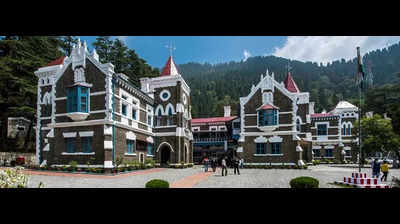- News
- City News
- dehradun News
- Chief Justice refers 2006 teacher appointment case to larger bench
Trending
Chief Justice refers 2006 teacher appointment case to larger bench


In a recent judgment, Chief Justice Bahri dismissed the state's special leave petition, ruling that the 2023 Supreme Court judgment cannot be applied to deny appointments to the respondents. The respondents argued that, after being selected for the Basic Training Certificate (BTC) course and completing their training, they were entitled to appointments.
However, Justice Rakesh Thapliyal took a different view, noting that the primary reason for contesting the single bench's judgment was a 2009 notification under the Right of Children to Free and Compulsory Education Act, which changed the minimum qualifications for primary teachers. This alteration rendered the petitioners ineligible for appointment.
In 2011, the govt had issued state elementary education service rules which required candidates to hold a diploma in elementary education and pass the Teacher Eligibility Test (TET), replacing the previous Bachelor of Education (BEd) qualification. The state, in its affidavit, said that the petitioners had not cleared the TET and were also over the age limit for the post.
Justice Thapliyal said that the Supreme Court had ruled that only those already appointed would be given protection, subject to their completion of a bridge course designed by the National Council for Teacher Education (NCTE). "The Supreme Court has clearly observed in this order that mere selection or participation in the process will not entitle the candidates to the same benefits given to those already appointed. SC further clarified that the directions issued are not confined to the particular state but shall cover all the cases which are pending in different states or Union Territories," Justice Thapliyal said, allowing the special leave petition moved by the state.
End of Article
FOLLOW US ON SOCIAL MEDIA











